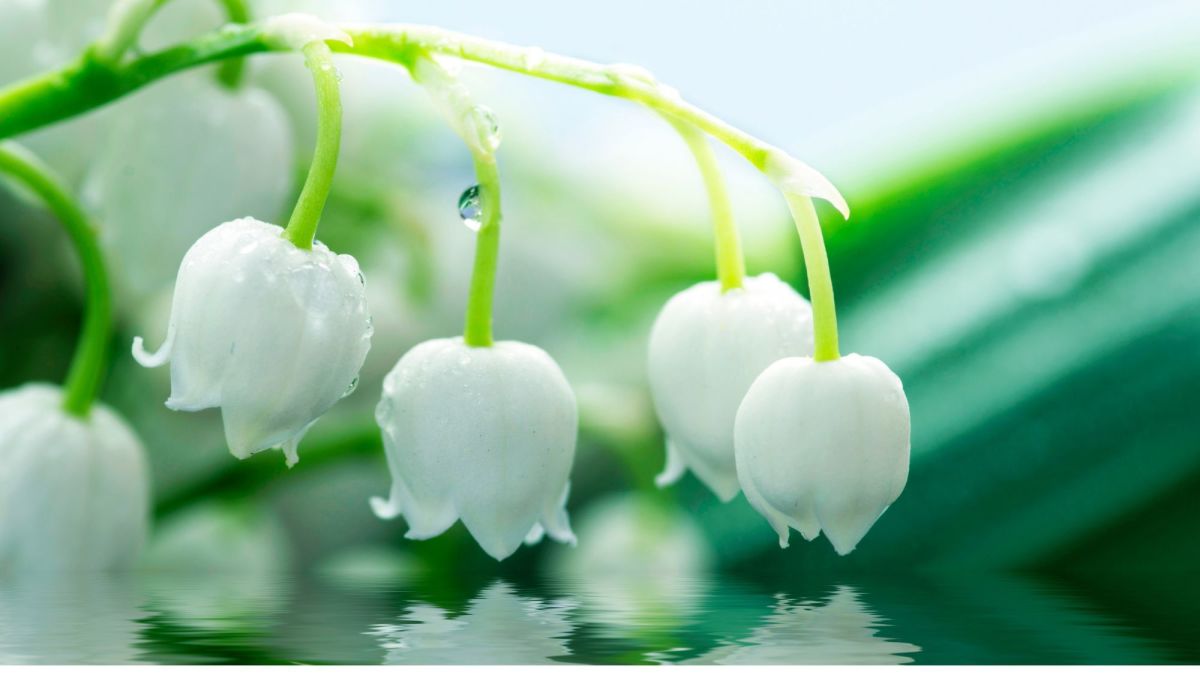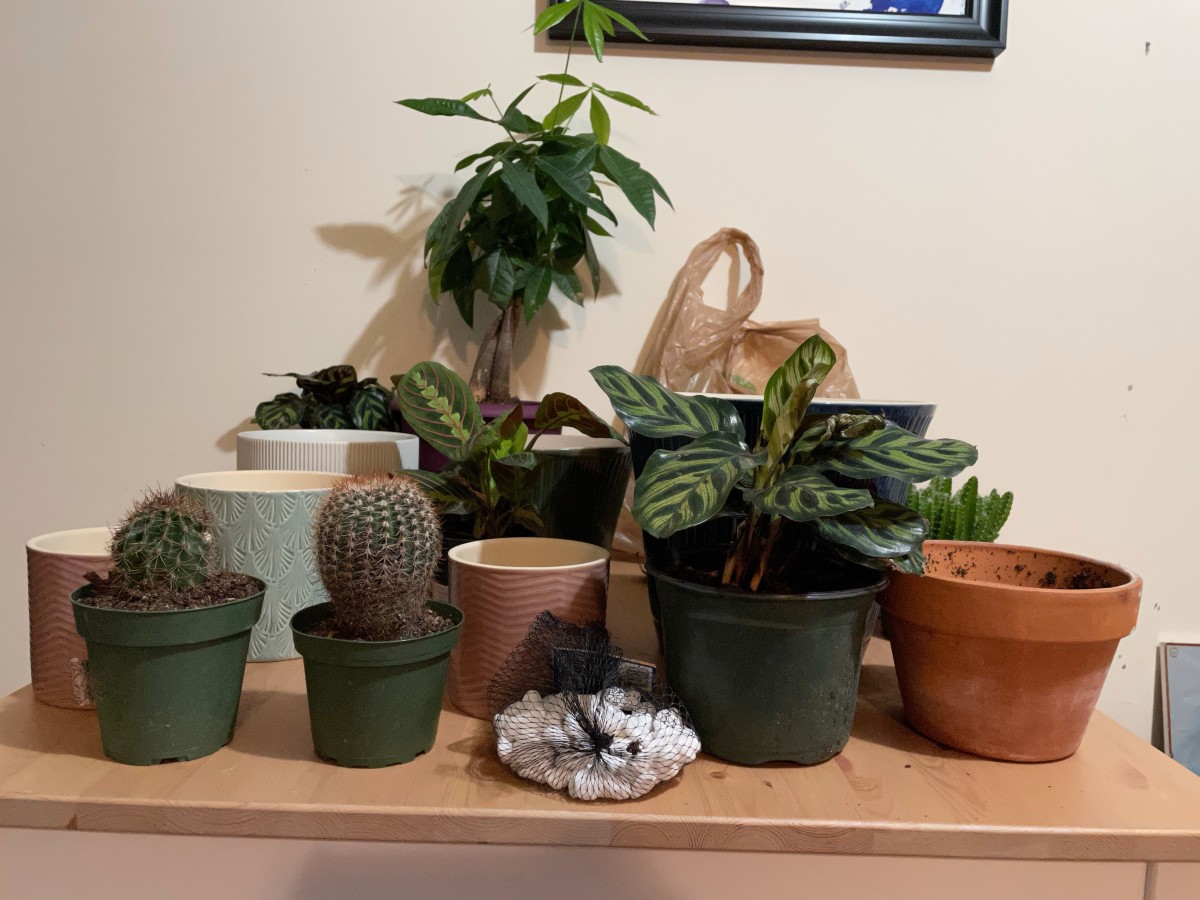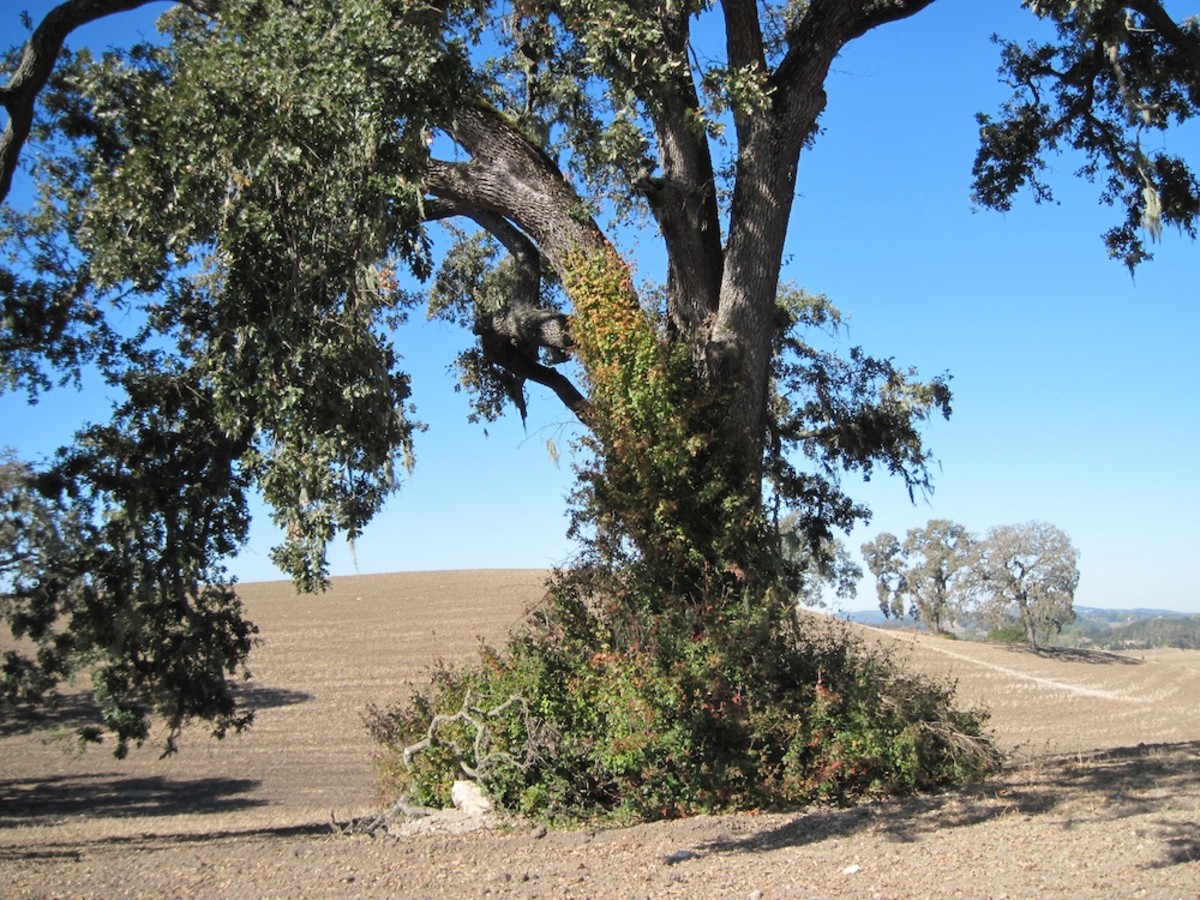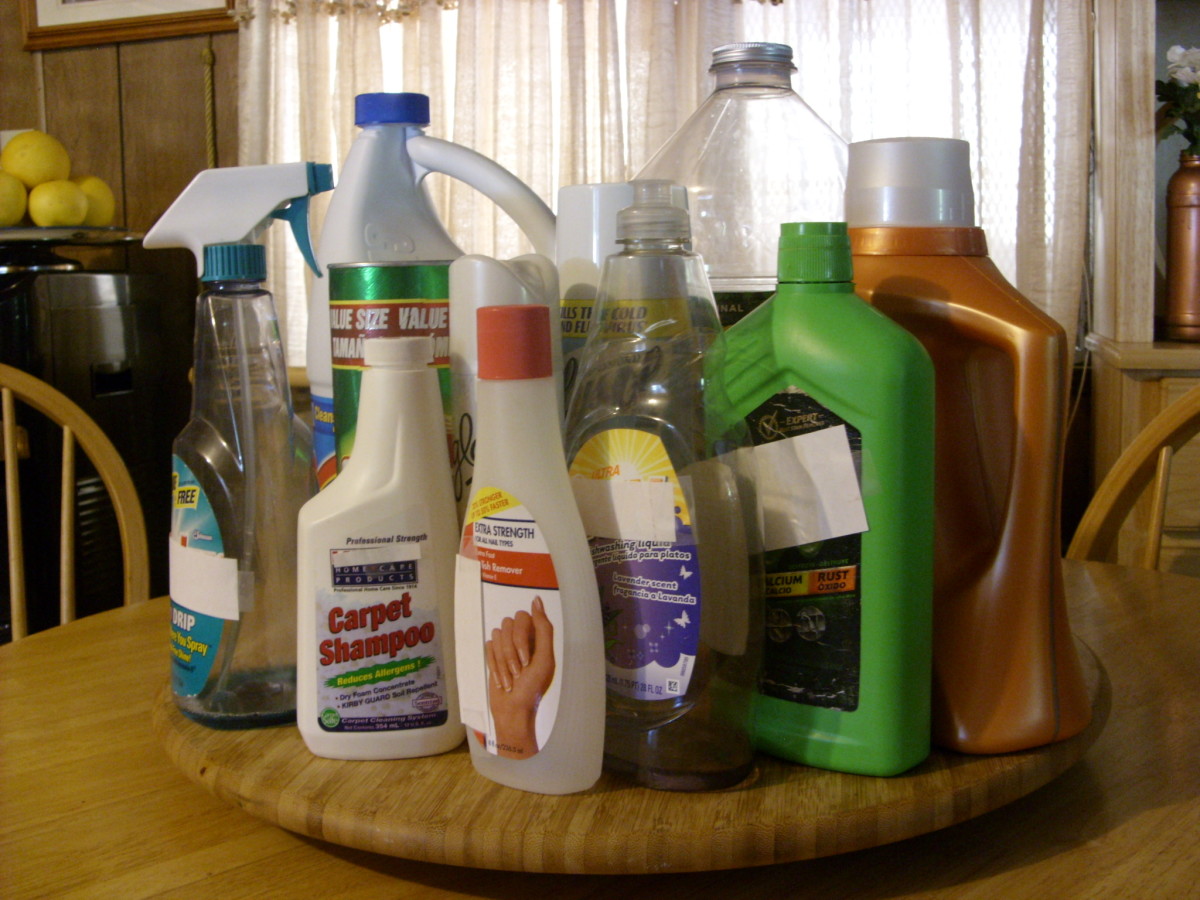All About Poison Ivy
I recently moved to a rural area after having lived in the city most of my life, and have had my first encounter with poison ivy. Not a pleasant experience! I learned the hard way about poison ivy. I hope this information will help others to avoid poison ivy altogether!
Leaves of three, Let them be!
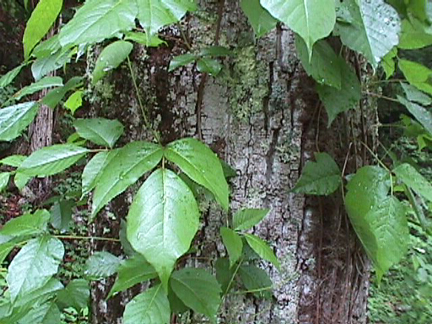
What is Poison Ivy?
I was actually surprised to find out that Poison Ivy is not actually a true form of ivy. It is, however, a very common plant that can be found all over the United States. It comes in different forms, which is why the rhyme "Leaves of three, Let them be" is very good advise. Now I know what to look for, and what to steer clear of. Poison ivy can grow as weeds on the ground or as vines that climb on trees and fences. Another rhyme that I had never heard is "Hairy vines, no friend of mine". The vines form reddish hairy roots that attach the vines to the tree.
What does the plant look like? The plant has sets of three almond shaped leaves attached to a stem. The leaves can be different shades of green, and turns a reddish color in the fall. It also produces "white berries" which are actually seed pods, and small white flowers.
Hairy Vines, No Friend of Mine!
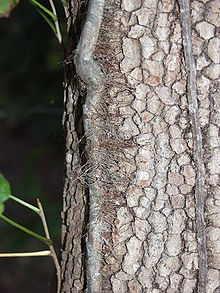
What makes it poison?
Poison Ivy is actually a pretty green plant that looks harmless enough. It's what's inside that can cause intense pain and itching. The leaves contain an oil called urushiol. This oil bonds with your skin on contact. Most people that come in contact with urushiol are allergic to it. It only takes a very small amount for a rash to develop.
These are some different ways that you may come in contact with poison ivy, besides actually touching it with your bare hands, like I did. Touching any other items that have been in contact with the plant, such as gardening tools, clothing, shoes, etc. I have read about wives getting poison ivy from their husbands hunting clothing! You can also get it from your pet if they have been in contact with the plant and have the oil on them. Another way is by burning the plant. Apparently the oil can be carried by the smoke, and can land on you.
Rhymes to Learn
-
"Leaves of three, Let them be."
-
"Berries white, Run in fright."
-
"Hairy vines, no friend of mine."
What to do, What not to do
To avoid poison ivy, try to wear long sleeves and pants when in wooded areas. When gardening or clearing out brush, wear gloves.
If you have come in contact with poison ivy, the first thing you should do is wash the area with cold water. Do not use hot water!Hot water opens your pores, and the oil will be able to seep further into your skin. Using a strong soap may help to get the oil off of your skin. It's very important to clean the oil off the skin as quickly as possible, to keep it from bonding with the skin. DO NOT TAKE A BATH. The oil can be spread in the bath water. Take a shower instead. Wash all clothing as soon as possible.
The Rash
Some lucky people are not allgeric to poison ivy, most people are. Some people begin to see red welts immediately occompained by intense itching.
Extreme cases may require a trip to the emergency room. Seek medical attention if you have:
- trouble breathing
- impaired vision
- difficulty swallowing
- temperature over 100 degrees
Getting Rid of the Posion Ivy Plant
Here are some things to keep in mind if you have poison ivy growing in your yard. Whenever the plant is injured, it releases urushiol. Poison ivy is a very delicate plant.The leaves are easily bruised and broken. This means that almost all the poison ivy you come into contact with will have urushiol seeping out of it. Even dead and dried up plants still contain the oil. Never burn poison ivy! The oil can spread through the smoke, landing on your skin. It's even more dangerous to breath in the smoke. If it gets into your nose, throat or lungs, it can kill you.
Keeping your lawn and fence line well trimmed will help prevent poison ivy from taking over. Cut back the poison ivy plant to ground level every time you see green growth. Always wear protective clothing when working near poison ivy. Some weed killers claim to work on poison ivy also.
More Helpful Info
- Poison Ivy -- familydoctor.org
Information on poison ivy from the American Academy of Family Physicians. - Poison Ivy
Poison ivy can give you a nasty rash. Find out more about it - and the other plants that can make you itch - in this article for kids. - Poison Ivy
poison ivy pictures, poison ivy facts, poison ivy poster

